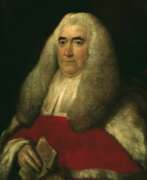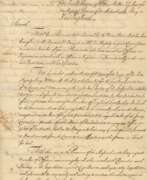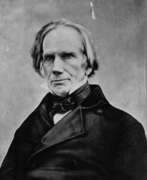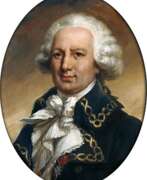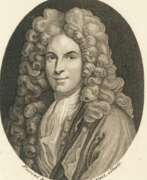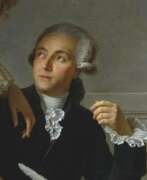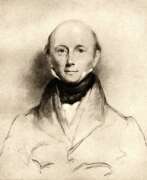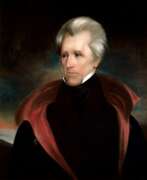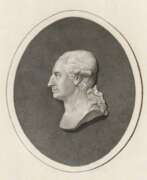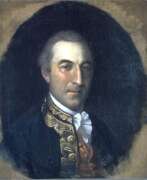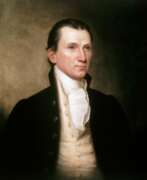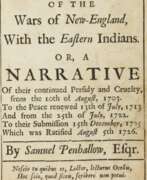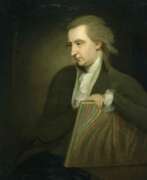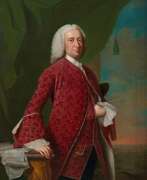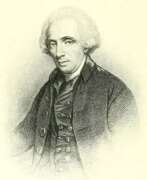Jurists 18th century
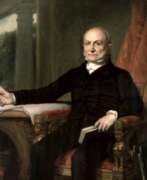

John Quincy Adams was an American politician and statesman, the sixth President of the United States (March 4, 1825 - March 4, 1829).
John Quincy Adams was the son of John Adams, the second President of the United States, and, of course, public service was his destiny. As a child, in 1778 he traveled to France with his father, who was then U.S. Commissioner to France. At the age of 14, Adams became personal secretary to Francis Dana, the U.S. Minister to Russia, serving as his father's secretary as well during the negotiation of the Treaty of Paris (1783). In 1787, the twenty-year-old Adams graduated from Harvard University and, after studying law, began practicing in Boston.
In addition to numerous diplomatic appointments, Quincy Adams served as a U.S. Senator from Massachusetts from 1803 to 1808. President James Madison appointed Adams U.S. minister to Russia in 1809, and Adams served until 1814. And under President James Monroe, he served as Secretary of State from 1817 to 1825 and is considered one of the best Secretaries of State in U.S. history.
John Quincy Adams won the 1824 presidential election in a four-way race against Henry Clay, William Crawford, and Andrew Jackson. As president, Adams supported a program to modernize the U.S. economy. But his popularity declined because of his approach to Native Americans, whom he supported against the demands of settlers from the west.
After losing the 1828 presidential election to Andrew Jackson, John Quincy Adams was elected to the House of Representatives, where he served as a representative from Massachusetts for the next 17 years. In the House of Representatives, Adams became one of the most vocal opponents of slavery. He consistently defended abolitionist views and policies, denouncing slavery as an immoral institution and attacking the interests of Southern slaveholders. During the U.S.-Mexican War of 1848, Adams was a leading opponent of the annexation of Texas, farsightedly predicting that it would lead to civil war.
After suffering two strokes, Adams died on February 23, 1848, at the age of 80. Had fate not predestined him to pursue politics, John Quincy Adams would have become a famous poet. He spent his life composing poems in various genres. After his death, many of his poems were collected and published in Poems on Religion and Society (1848).
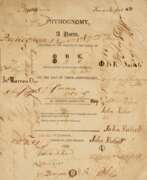

Joseph Bartlett was an American lawyer, politician, and poet.
Bartlett graduated from Harvard and began his law practice in Woburn. In 1782, he was elected a member of the Harvard chapter of the PBK. In 1803 he moved to Saco, Maine, where he was elected state senator the following year.
Joseph Bartlett was a man of eccentricity, with a very peculiar taste. His charisma and sharp wit ensured the success of his lectures. Bartlett is the author of the satirical poem Physiognomy, a Poem (1799).
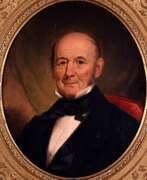

Abijah Bigelow is an American legislator, U.S. Representative from Massachusetts, poet and publicist.
Bigelow attended Dartmouth College in Hanover and became a lawyer. Between 1810 and 1815, he represented Massachusetts in the U.S. House of Representatives, where he strongly opposed the War of 1812. He also served as a justice of the peace from 1809 until his death.
As an author and poet, Bigelow published his work in Worcester newspapers throughout his life. Six essays entitled "Political Reflections" were published in the Massachusetts Spy in 1812, and a series of articles on slavery, signed by him as "The Unprofessional," were printed in the Worcester Palladium in 1838. Bigelow was also a member of the American Antiquarian Society.
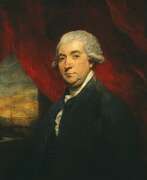

James Boswell was a Scottish lawyer, biographer and writer.
On the advice of his father, the judge and Lord Alexander Boswell, James studied law at the universities of Edinburgh and Glasgow, but then led a high society life in London. After several years of traveling, he settled in Edinburgh, where he practiced law for 17 years from 1766.
James Boswell was best known as the author of An Account of Corsica (1768) and The Life of Samuel Johnson (1791). But in addition, from the early 1760s and almost to the end of his life, he kept detailed diary entries that were discovered in the 1920s and became one of the major literary discoveries of the 20th century. During his life, James Boswell met many of the great and powerful men, writers, philosophers, and scientists of his time, including Rousseau and Voltaire. His diaries record unique observations on the lives and personalities of the second half of the eighteenth century.
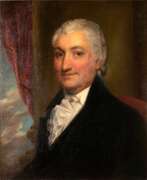

Hugh Henry Brackenridge was an American writer and poet, jurist and Pennsylvania Supreme Court Justice.
Hugh Henry graduated from the College of New Jersey (now Princeton University), learned Latin and Greek, and became a teacher. He later served in George Washington's army and published two verse dramas on revolutionary themes. He worked with the poet Philip Morin Freneau (1752-1832) on satirical and political publications.
Hugh Henry Breckenridge founded the Pittsburgh Academy, now the University of Pittsburgh, and the Pittsburgh Gazette, which is still published today.
Breckenridge is also known as the author of the first novel about frontier life in the United States after the Revolutionary War, Modern Chivalry. Considered one of the earliest American novels, this book was published in installments beginning in 1792 over a period of 23 years. In the latest edition, Captain John Farrago, along with his own Sancho Panza, Teague, leaves his farm in western Pennsylvania and sets out to find adventure in the big world.
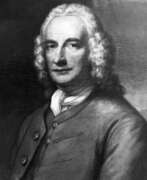

Henry Fielding was an 18th-century British judge, writer and playwright, and the founder of the English realist novel.
Fielding attended Eton College, where he studied classical writers, and wrote his first play in 1728. In all, he wrote about 25 rather witty and topical plays for the theater. But this activity led to the fact that in 1737, the Act of Theater Censorship was passed, and satire on political topics became virtually forbidden. To find a source of income, Fielding went to study law at Middle Temple and became a lawyer.
In 1741, Fielding wrote his first parody of Samuel Richardson's Pamela: or Rewarded Virtue, he called it "An Apologia of the Life of Mrs. Shamela Andrews." Others followed, and in essence Fielding started a new genre in fiction. And in 1742, he wrote the novel "Joseph Andrews."
In the late 1740s, Fielding was appointed Justice of the Peace of Westminster and then Justice of the Peace of Middlesex. But he did not abandon his creativity and in 1749 he wrote the famous comic "The Story of Tom Jones, the Foundling," a work that is considered one of the greatest early English-language novels. The novel was so warmly received by its first readers that four editions totaling 10,000 copies were published in less than a year.
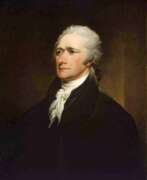

Alexander Hamilton was an American politician and statesman, the founder of the American financial system.
A native of Great Britain, Hamilton arrived in continental America in late 1772 and enrolled at King's College in New York. He became captain of an artillery company in 1776 and fought in the battles of Kips Bay, White Plains, Trenton, and Princeton during the American War of Independence. For four years he served on George Washington's staff as adjutant with the rank of lieutenant colonel. And in 1782, Hamilton was chosen by New York as a delegate to the Confederate Congress.
Alexander Hamilton was also one of New York's delegates to the Constitutional Convention in Philadelphia in 1787. He was a passionate advocate of the Constitution and, along with future President James Madison and John Jay, contributed to the famous book The Federalist (1788), writing most of the essays for it. After George Washington was elected the nation's first president in 1789, he appointed Hamilton Secretary of the Treasury. As the first Secretary of the Treasury (1789-1795), Hamilton developed plans to finance the national debt, secure federal credit, encourage the expansion of manufacturing, and organize a federal bank. In 1801, Hamilton founded the New York Evening Post newspaper.
On July 11, 1804, Hamilton was mortally wounded in a duel with his personal and political rival, Vice President Aaron Burr. Today, Alexander Hamilton is revered as one of the founding fathers of the United States, he is known for his role in creating America's financial system, and his portrait is on the ten dollar bill.
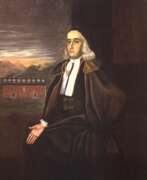

John Hathorne was a merchant and justice of the peace of the colony in Massachusetts, United States.
Hathorne's father, Major William Hathorne, was among the first settlers of the Massachusetts Bay Colony in the 1630s, holding a number of military and political positions over several decades.
John Hathorne himself is known for having participated as a justice of the peace in 1692 in the famous Salem Witch Trials during the witchcraft hysteria. Extant documents prove that Hathorne was the chief prosecutor, convinced of the guilt of the accused. The trial ended with the execution of 20 people, and John Hathorne never repented, although the High Court later acquitted most of the accused. He was appointed a member of the Superior Court in 1702 and sat on it for ten years.
John was the great-great-grandfather of the writer Nathaniel Hawthorne (1804-1864), author of many works, including The Scarlet Letter and The House of the Seven Gables. They are set in Salem and contain allusions to the witch trials in the history of the house. John Hathorne's personality has served as a prototype for the bigoted and demonic characters of many works by other authors. And Nathaniel Hawthorne himself changed the spelling of his surname to distance himself from his ancestor.
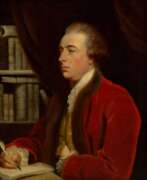

John Hawkesworth was a British writer, playwright and book editor.
In collaboration with Samuel Johnson, Hawkesworth founded the periodical The Adventurer. He wrote poems and articles for this publication and for the Gentleman's Magazine, and edited the works of Swift (1754-1755). Hawksworth adapted several literary works for the theater and also composed various original dramatic works himself.
John Hawksworth was commissioned by the British Admiralty to compile An Account of Voyages made in the Southern Hemisphere (1773), devoted mainly to the exploratory voyages of Captain James Cook.
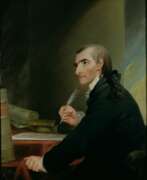

Francis Hopkinson was an American politician, member of the Continental Congress, lawyer, writer and composer.
Hopkinson was educated at Philadelphia College and studied law and was admitted to the bar. In 1774 Hopkinson was appointed a member of the governor's council, and in 1776 he represented New Jersey in the Continental Congress and signed the Declaration of Independence. He was a judge of the Pennsylvania admiralty court from 1779 to 1789 and then served as U.S. District Judge for eastern Pennsylvania until his death.
Hopkinson is credited as one of the designers of the Flag of the United States as well as continental paper bills. As an artist, he designed the seal of the American Philosophical Society, the seal of the State of New Jersey, and the seals of various departments of the U.S. government.
In addition to politics, Hopkinson dabbled in the arts: he played the harpsichord and composed music, and wrote poetry and essays. During the Revolution, he mocked the British and their Loyalist supporters in witty political satires. After the Revolution, he maintained an active correspondence with Benjamin Franklin, George Washington, and Thomas Jefferson.
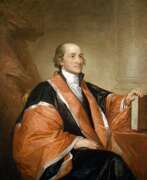

John Jay was an American lawyer and diplomat, statesman, and one of the founding fathers of the United States.
Jay came from French Huguenots, after graduating from King's College (now Columbia University) he entered law school and was admitted to the bar in 1768. After the outbreak of hostilities in the spring of 1775, Jay continued to serve both in New York and in the Continental Congress, which elected him president in late 1778.
In the fall of 1779 he was appointed minister plenipotentiary to Spain, which had recently entered into an alliance with France against England. In May 1782 he traveled to Paris, where a treaty was concluded that formally ended the war with Great Britain in 1783. Before returning to America in July 1784, Jay was appointed secretary of foreign affairs.
In 1788, Jay actively advocated for the ratification of the U.S. Constitution by the state of New York. Together with future President James Madison and economist Alexander Hamilton, he participated in the creation of the famous book The Federalist (1788). Under the new Constitution, President Washington appointed John Jay Chief Justice of the United States in 1789, and in July 1795 he became Governor of New York. After completing his second term as governor in June 1801. Jay retired to his farm in Bedford, New York.
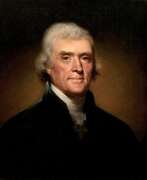

Thomas Jefferson was an American politician and statesman, the third President of the United States (March 4, 1801 - March 4, 1809).
Jefferson was the son of a planter and received a law degree. In 1774, he wrote A Summary of the Rights of British America, which attracted public attention, and he soon gained a reputation as one of the first advocates of American independence from the authority of the British Parliament. In the spring of 1775, the Virginia legislature appointed him a delegate to the Second Conference of the Continental Congress. A year later he was appointed to a committee of five, which also included Adams and Benjamin Franklin, to draft a formal statement of reasons to justify a break with Great Britain. Jefferson thus became one of the authors of the Declaration of Independence. Jefferson succeeded Benjamin Franklin as minister to France in 1785, was secretary of state (1790-1793) under Washington, and vice president (1797-1801) under John Adams.
A Democratic-Republican, Jefferson, who believed that the national government should play a limited role in the lives of citizens, was elected president in 1800. One of the most significant accomplishments of Jefferson's first administration was the purchase of the Louisiana Territory from France for $15 million dollars in 1803 (from the Gulf of Mexico to present-day Canada), effectively doubling the size of the United States. During his second term, Jefferson was focused on trying to keep America out of the Napoleonic Wars in Europe. After his second term as president, he was succeeded by James Madison in 1808.
Upon leaving office, Jefferson retired to his plantation in Virginia, pursued his favorite pastimes, and helped found the University of Virginia. In addition to politics, he is known as a writer, farmer, horticulturist, inventor, book collector, art historian, architect, and scientist. He died at the age of 83 on July 4, 1826, the 50th anniversary of the Declaration of Independence.
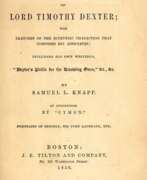

Samuel Lorenzo Knapp is an American author and lawyer and politician.
Knapp graduated from Dartmouth College and eventually became a prominent lawyer, holding a Juris Doctor degree. He was a representative in the Massachusetts legislature from 1812 to 1816, and in 1814 joined the American Antiquarian Society.
In 1824 Knapp became editor of the Boston Gazette and also kept the Boston Monthly Journal. In 1826 he founded the National Republican Party, which collapsed two years later, and returned to practicing law in New York City. Knapp published various biographical studies as well as many public discourses on politics and society.
In 1818 his fiction Ali Bey (Excerpts from a Journal of Travels in North America, consisting of descriptions of Boston and its environs) was published. It is a sort of diary of a fictional Ottoman spy who travels in America disguised as a Frenchman.
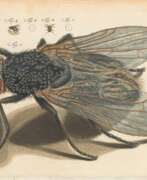

Martin Frobenius Ledermüller was a German lawyer and amateur naturalist, popularizer of natural sciences.
Ledermüller received a law degree and worked in bureaucratic and legal positions, and it was only at an advanced age that he was able to pursue his favorite occupation - science, to which he would devote himself fully in future studies. The results of his work are the first most beautifully illustrated books of the eighteenth century devoted to microscopes and research with them.
Ledermüller's famous work Mikroskopische Gemüths- und Augenergötzungen was published in 1759 in French and Dutch and has been reprinted several times. The 158 beautifully illustrated pages show all sorts of natural objects, including shells, salts, plants and flowers, insects, human blood and urine viewed through a microscope. Several microscopes and their component parts are also illustrated.
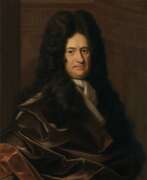

Gottfried Wilhelm Leibniz was a German philosopher and a prominent polymath in many fields of science.
Leibniz was a universal genius; he showed his talents in logic, mathematics, mechanics, physics, law, history, diplomacy, and linguistics, and in each of the disciplines he has serious scientific achievements. As a philosopher, he was a leading exponent of 17th-century rationalism and idealism.
Leibniz was a tireless worker and the greatest scholar of his time. In the fate of Leibniz, among other things, there is one interesting page: in 1697, he accidentally met the Russian Tsar Peter I during his trip to Europe. Their further meetings led to the realization of several grandiose projects in Russia, one of which was the establishment of the Academy of Sciences in St. Petersburg.
Gottfried Wilhelm Leibniz was also the founder and first president of the Berlin Academy of Sciences and a member of the Royal Society of London.
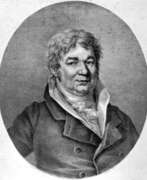

Felix Joseph Lipowsky was a Bavarian lawyer, historian and archivist.
Lipowsky studied law in Munich and entered the Bavarian civil service. During the Napoleonic Wars he was assigned diplomatic duties and was also commandant of Munich for a time.
Lipowski was the author of published biographical encyclopedias on Bavarian history, containing a wealth of information on Bavarian art and cultural history. Between 1822 and 1830 he published a collection of Bavarian national costumes, which became the basis for the development of the costume movement in Bavaria.
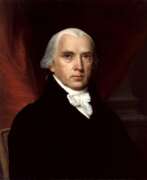

James Madison was an American politician and statesman, the fourth President of the United States (1809-1817).
Madison attended Princeton and studied history, government, and law. He participated in the drafting of the Virginia Constitution in 1776, and in 1780 was chosen to represent Virginia in the Continental Congress (1780-83 and 1786-88). James Madison contributed greatly to the ratification of the Constitution, writing, with Alexander Hamilton and John Jay, The Federalist (1788). He was later called the "father of the Constitution."
In 1792, Madison and Thomas Jefferson (1743-1826) founded the Democratic-Republican Party, which has been called America's first opposition political party. When Jefferson became the third president of the United States, Madison served as his secretary of state. In Congress, he was involved in drafting the Bill of Rights and passing the first revenue legislation. As Secretary of State to President Jefferson (1801-1809), Madison protested to warring France and Great Britain that their seizure of American ships was contrary to international law.
Madison was elected president in 1808, succeeding Jefferson. Continued British interference in shipping, as well as other grievances, led to the War of 1812. During Madison's second term as president, the war was still ongoing, and he and his wife were even forced to flee in the face of advancing British troops who set Washington, D.C. on fire. Despite this, in 1815, the United States declared its victory in the war.
After the end of his second term, Madison remained active in public affairs. He edited his Journal of the Constitutional Convention, was co-chairman of the Virginia Constitutional Convention from 1829-1830, and chancellor of the University of Virginia from 1826-36. He was also Monroe's foreign policy advisor. Although Madison was a slave owner all his life, in the last years of his life he was active in the American Colonization Society, whose mission was to resettle slaves in Africa. James Madison died at the age of 85 in 1836.
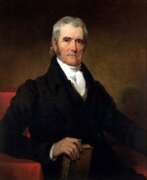

John Marshall was Chief Justice of the United States Supreme Court from 1801 to 1835, Secretary of State, and one of the founders of the American legal system.
During the Revolutionary War, Marshall served first as a lieutenant and after July 1778 as a captain in the Continental Army. In 1781 he left the service, studied law, and began practicing law in Virginia, in Fauquier County, and then in Richmond. He soon became head of the Virginia bar and was a member of the Virginia assembly. In 1788 he took a leading part in the Virginia convention convened to discuss the proposed U.S. Constitution. In 1797-98, along with Charles Cotesworth Pinckney and Elbridge, Gerry Marshall was appointed by John Adams to negotiate with France.
He was Secretary of State under President Adams from June 6, 1800 to March 4, 1801. At the same time he was appointed Chief Justice of the Supreme Court in 1801 and served in that position until 1835.
John Marshall was a personal friend of Washington, he announced his death in 1799, organized his funeral, and delivered his eulogy. Washington's relatives soon asked Marshall to write a biography of the late president. "The Life of George Washington" was published in London in 1804-1807. It includes illustrations, portraits, facsimile letters, and folding maps.
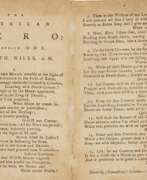

Nathaniel Niles is an American lawyer and politician, a member of the House of Representatives from Vermont.
Niles attended Harvard College and the College of New Jersey, eventually becoming a preacher but also active in politics. Niles sat in the lower house of the Vermont legislature for eight terms. From 1784 to 1787 he was a member of the state supreme court.
In addition to his sermons, he published numerous theological articles. When the American Revolution broke out in 1775, Niles enthusiastically supported the war against England. He even wrote his only work of poetry, an ode entitled "American Hero," to commemorate the Battle of Bunker Hill, which was set to music and became quite popular among New England soldiers and militia.
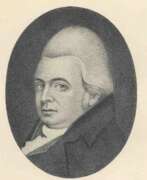

Royall Tyler, real name William Clark Tyler, was an American politician, lawyer and judge, playwright, essayist and educator.
He graduated from Harvard University, was admitted to the bar, and in 1801 was appointed a justice of the Vermont Supreme Court. In 1811, Tyler was appointed professor of jurisprudence at the University of Vermont.
Royall Tyler is best known today as the author of the first American comedy, Contrast, which premiered in 1787 at the John Street Theater. This play is the first to feature a Yankee character, a character native and familiar to local audiences, and the forerunner of many such in later years.
